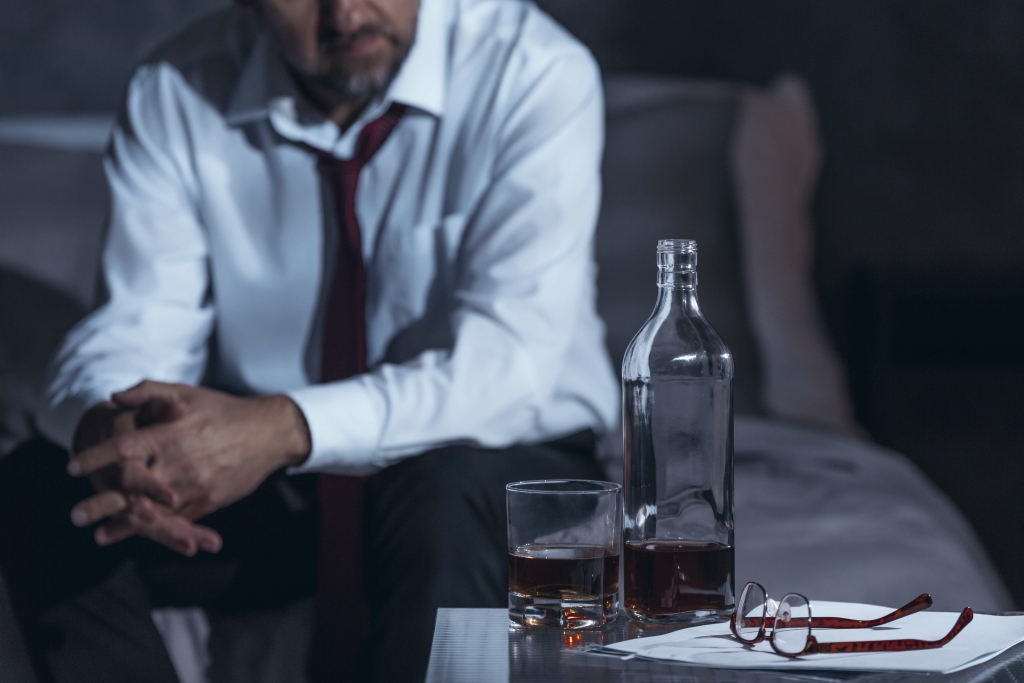These groups provide a safe and understanding environment where individuals can share their experiences, challenges, and successes with others who have faced similar struggles. Seeking help from healthcare professionals, addiction specialists, or therapists with expertise in addiction can provide the guidance and support needed to navigate the recovery process. These professionals can assess the severity of the addiction and create a personalized treatment plan tailored to individual needs. People with psychological dependence on alcohol or drugs often experience several symptoms. Their body gets used to the substance (chemical tolerance), they fear withdrawal symptoms, and they have strong cravings. They may also use the substance to escape from problems, which often started their dependence in the first place.
More on Substance Abuse and Addiction
If an individual is beginning to think about alcohol as a problem worth trying to solve, educational groups may provide support for weighing the pros and cons of drinking. Holistic addiction treatment goes beyond addressing the symptoms of alcohol dependence. Instead, it seeks to treat the root causes and underlying issues that drive an individual to drink.
Expected duration of alcohol use disorder
Remember, if you or someone you know is struggling with alcohol addiction, seeking professional help is crucial. Cravings can be overwhelming and difficult to resist, often leading individuals to give in to their desires for alcohol. This further reinforces the addiction cycle, as the brain perceives the consumption of alcohol as a reward and reinforces the cravings. People who are emotionally dependent on alcohol may feel a strong need to consume alcohol in order to relax, feel more confident, or relieve stress and anxiety. They may struggle to regulate their emotions without the presence of alcohol, leading to a cycle of dependence and reliance. If you or a loved one are seeking recovery services that accept your medical insurance, reach out to Infinite Recovery today.
Cravings and Triggers

Oro Recovery provides compassionate care, combined with evidence-based treatment therapies for people struggling with addiction and mental health. Since psychological dependence relates to the mental obsession and emotional reliance on substance use, effective treatment needs to address both conscious and subconscious thought patterns, emotions, and behaviors. This form of dependence involves a powerful desire to repeat the behavior, not because of any physiological withdrawal symptoms, but because of the emotional associations and cravings related to the effects of the substance. Unlike the physical dependence that occurs from neurological changes due to chronic drug use, an individual believes they cannot function without using substances from a psychological or emotional standpoint. Moreover, you will be held accountable by others and learn how to cope with psychological dependence on alcohol symptoms of psychological dependence, including cravings, recurrent thoughts of drinking, and urges to drink in order to deal with everyday stressors.
- It is estimated that approximately 63,000 people entered specialist treatment for alcohol-use disorders in 2003–04 (Drummond et al., 2005).
- A seemingly innocuous substance, alcohol has woven a complex tapestry throughout human history, profoundly shaping our behavior and mental well-being in ways that continue to captivate psychologists and researchers alike.
- To fully comprehend alcohol use and misuse, psychologists employ various theoretical frameworks.
Early stage alcoholism might involve occasional binge drinking or using alcohol to cope with stress. As the condition progresses, individuals may experience increased tolerance, withdrawal symptoms, and a loss of control over their drinking. The line between use, abuse, and dependence is often blurry, much like our vision after a few too many drinks.
Recognizing one’s psychological reliance on alcohol or drugs enables one to become conscious of and start changing negative behaviors, thoughts, and feelings linked to psychological addiction. The mind’s silent struggle with psychological dependency may be complex, but it’s not insurmountable. With continued research, compassionate treatment approaches, and a societal shift towards understanding rather than judgment, we can help those trapped in the web of addiction find their way to freedom and healing. Some people become “stuck” in their grief, unconsciously resisting moving forward because the pain of loss has become a familiar, almost comforting state. This psychological dependency on grief can significantly impact mental health and quality of life.
DBT’s role in improving emotional resilience

For many illegal and commonly abused drugs, the withdrawal symptoms can be incredibly uncomfortable, even painful and traumatic. This can instill a literal fear of withdrawal for many users of drugs like heroin or meth. Therefore, even though they do not feel the same effects, they will frequently take what is referred to as a maintenance dose, which is what they take solely to avoid the possibility of withdrawal symptoms and sickness. If someone believes that alcohol will make them more outgoing or attractive, they’re more likely to drink in social situations.
- Sign up to get tips for living a healthy lifestyle, with ways to lessen digestion problems…keep inflammation under control…learn simple exercises to improve your balance…understand your options for cataract treatment…all delivered to your email box FREE.
- After managing that program for six years, Danny moved to AspenRidge and now leads the clinical team.
- Binge drinking is episodic, and while it causes short-term harm, it does not usually result in the ongoing craving or withdrawal symptoms seen in alcohol dependence.
- It forms a powerful barrier to recovery from drug abuse or alcohol addiction, but with a comprehensive approach that addresses underlying causes and triggers, you or your loved one can embark on a path to lasting sobriety.
Treatment Options for Psychological Addiction to Alcohol
Understanding the psychology behind alcohol addiction is crucial in developing effective strategies to overcome it. Two key aspects of this psychological addiction are the reinforcement and reward system and the cravings and triggers that contribute to the cycle of addiction. Psychological addiction refers to a compulsive urge or craving for a substance, in this case, alcohol, due to the pleasurable or rewarding effects it produces. It is primarily driven by psychological and emotional factors, rather than solely relying on physical dependency.
How to Overcome Isolation in Addiction Recovery
There is amphetamine addiction treatment clear evidence that adverse life events can trigger excessive drinking and may predispose to the development of alcohol dependence. This is particularly apparent in alcohol dependence developing later in life following, for example, a bereavement or job loss. People who are alcohol dependent also report much higher levels of childhood abuse and neglect, particularly sexual abuse. One UK study found 54% of female and 24% of male alcohol dependent patients identified themselves as victims of sexual abuse, mostly before the age of 16 years (Moncrieff et al., 1996). Further, they were more likely to have a family history of alcohol misuse, and began drinking and developed alcohol dependence earlier than those without such a history. Alcohol can, temporarily at least, reduce the symptoms of anxiety and depression, leading to the theory that alcohol use in this situation is a form of ‘self-medication’.